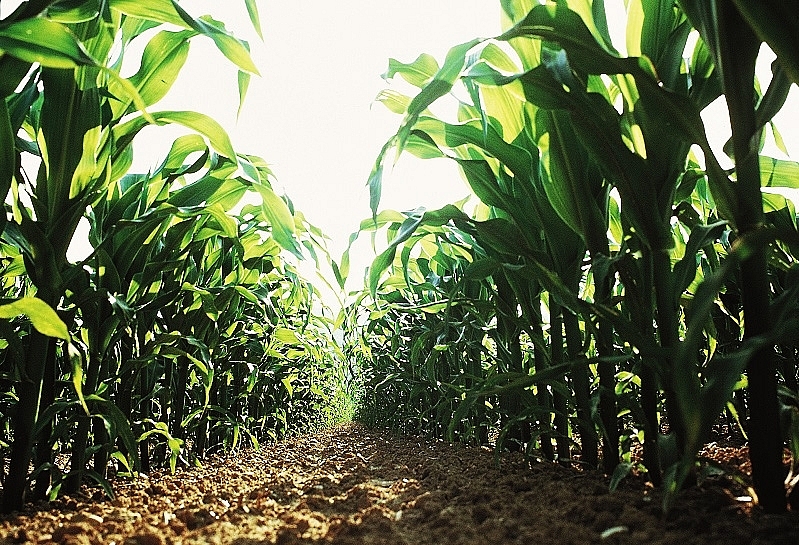EPA reaffirms no risk to public health from glyphosate
 |
| Glyphosate is used on more than 100 food crops, including glyphosate-resistant corn, soybean, cotton, and more |
The agency’s scientific findings on human health risk are consistent with the conclusions of science reviews by many other countries and other federal agencies.
While the agency did not identify public health risks in the 2017 human health risk assessment, the 2017 ecological assessment did identify ecological risks. To address these risks, EPA is proposing management measures to help farmers target pesticide sprays on the intended pest, protect pollinators, and reduce the problem of weeds becoming resistant to glyphosate.
“EPA has found no risks to public health from the current registered uses of glyphosate,” said EPA Administrator Andrew Wheeler. “Today’s proposed action includes new management measures that will help farmers use glyphosate in the most effective and efficient way possible, including pollinator protections. We look forward to input from farmers and other stakeholders to ensure that the draft management measures are workable, realistic, and effective.”
“If we are going to feed 10 billion people by 2050, we are going to need all the tools at our disposal, which includes the use the glyphosate,” US Secretary of Agriculture Sonny Perdue said. “The US Department of Agriculture applauds EPA’s proposed registration as it is science-based and consistent with the findings of other regulatory authorities that glyphosate does not pose a carcinogenic hazard to humans.”
| To address public health risks, EPA is proposing management measures to help farmers target pesticide sprays on the intended pest, protect pollinators, and reduce the problem of weeds becoming resistant to glyphosate. |
Early last month Vietnam’s Ministry of Agriculture and Rural Development enacted a decision proposing the removal of pesticides containing the active ingredient glyphosate from the list of pesticides allowed for use in Vietnam.
The move had leveraged the studies the ministry (MARD) has conducted back in 2015 after the International Agency for Research on Cancer (IARC), which belongs to the World Health Organization (WHO), announced their assessment about potential causes of blood, lung, and prostate cancer via pesticides containing glyphosate.
It was also based on the verdicts from two American courts against global seeds firm Monsanto, which stated that the group’s Roundup herbicide was the important agent in causing cancer to two American men.
“In order to protect human health, animals, the ecosystem and the environment, the Minister of Agriculture and Rural Development signed Decision No.1186/QDD-BNN-BVTV on April 10 regarding the removal of pesticides containing glyphosate from the list of pesticides allowed for use in Vietnam,” the MARD said in a press statement released early last month.
In Vietnam, glyphosate carries over 100 different trade names, and the decision will come into force 60 days from April 10. The roadmap allows continued usage and trading of already-imported glyphosate for up to a year.
What the stars mean:
★ Poor ★ ★ Promising ★★★ Good ★★★★ Very good ★★★★★ Exceptional
Related Contents
Latest News
More News
- France supports Vietnam’s growing role in international arena: French Ambassador (January 25, 2026 | 10:11)
- Foreign leaders extend congratulations to Party General Secretary To Lam (January 25, 2026 | 10:01)
- Russian President congratulates Vietnamese Party leader during phone talks (January 25, 2026 | 09:58)
- Worldwide congratulations underscore confidence in Vietnam’s 14th Party Congress (January 23, 2026 | 09:02)
- Political parties, organisations, int’l friends send congratulations to 14th National Party Congress (January 22, 2026 | 09:33)
- 14th National Party Congress: Japanese media highlight Vietnam’s growth targets (January 21, 2026 | 09:46)
- 14th National Party Congress: Driving force for Vietnam to continue renewal, innovation, breakthroughs (January 21, 2026 | 09:42)
- Vietnam remains spiritual support for progressive forces: Colombian party leader (January 21, 2026 | 08:00)
- Int'l media provides large coverage of 14th National Party Congress's first working day (January 20, 2026 | 09:09)
- Vietnamese firms win top honours at ASEAN Digital Awards (January 16, 2026 | 16:45)

 Tag:
Tag:


























 Mobile Version
Mobile Version